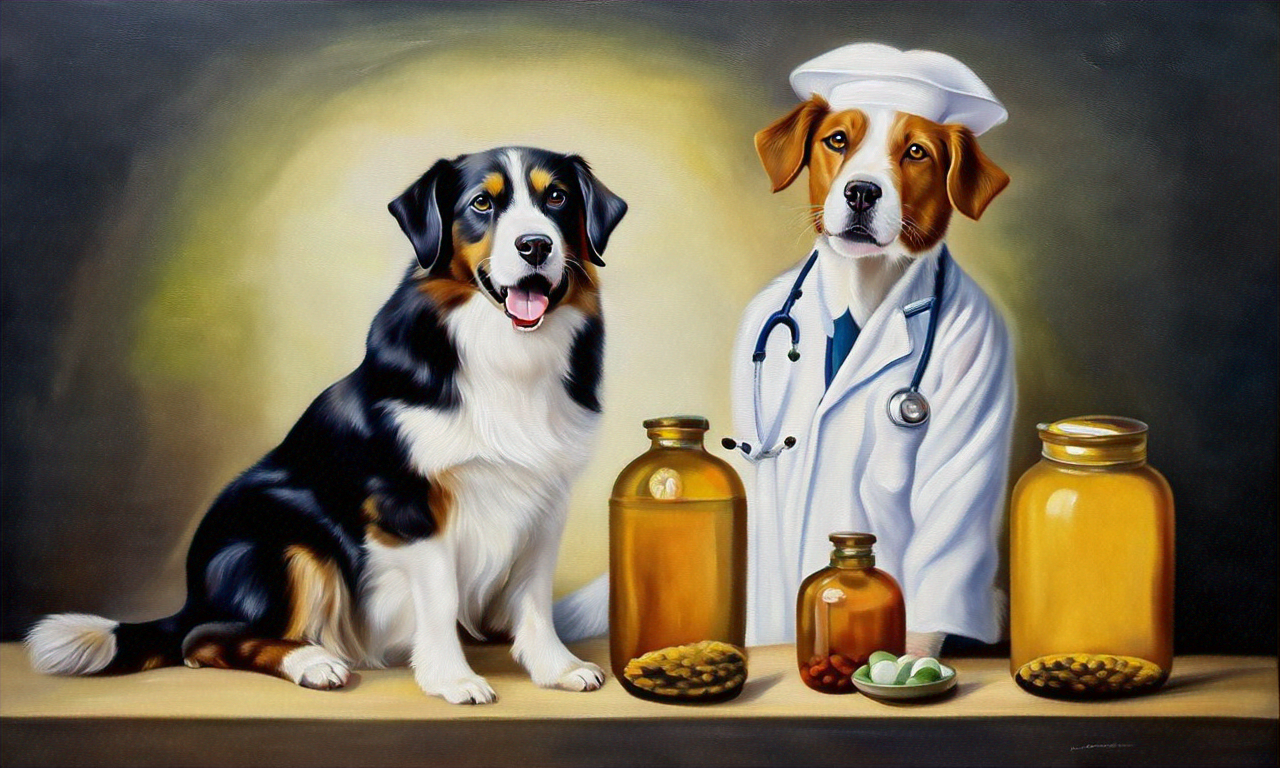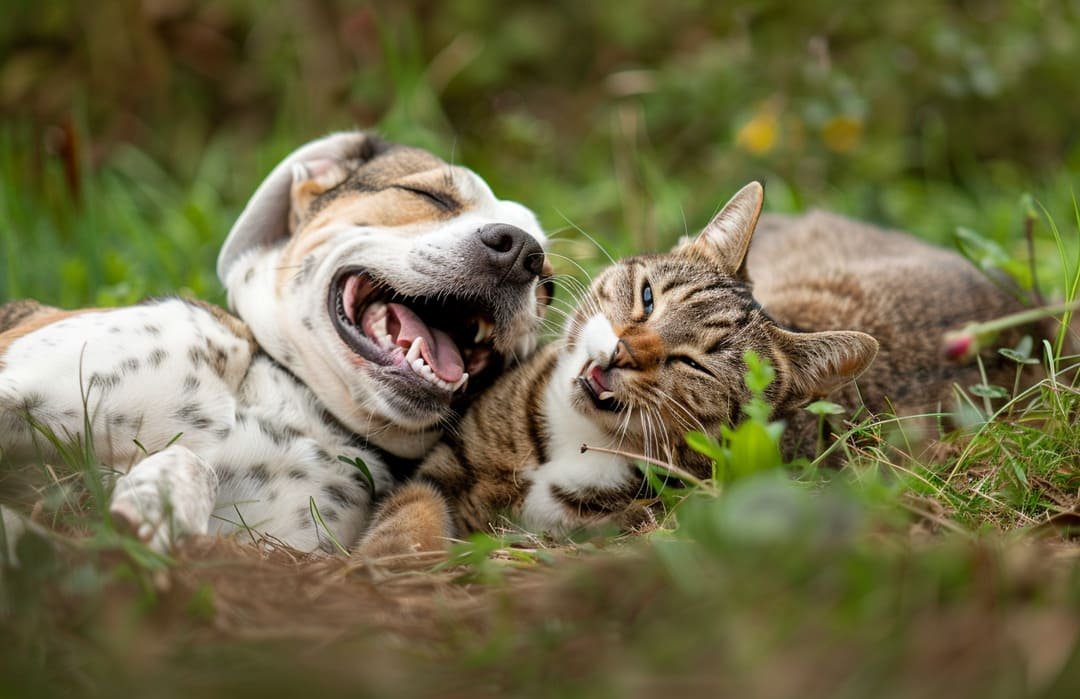Are you concerned about your dog's incessant paw chewing? Finding effective dog gnawing on paws solutions is essential to address this behavior and ensure your furry friend's well-being. Let's explore practical strategies and expert advice to help your canine companion overcome the urge to chew on their paws.
Understanding Paw Chewing in Dogs
Dogs gnawing on their paws can be distressing for both the pet and the owner. It's essential to understand the reasons behind this behavior to effectively tackle it.
Common Reasons for Paw Chewing
-
Allergies: Environmental or food allergies can lead to paw itching and chewing.
-
Boredom: Dogs may chew their paws out of boredom or lack of mental stimulation.
-
Anxiety: Stress or anxiety can manifest in excessive paw licking or chewing.
Importance of Early Intervention
Addressing paw chewing behavior early is crucial to prevent the development of infections or injuries. Ignoring the issue may lead to chronic paw problems and discomfort for your furry friend.
By recognizing the root cause of your dog's paw chewing, you can tailor your approach to finding the most effective solution.
For further insights on understanding your dog's behavior, consult reputable sources such as American Kennel Club.
Implementing Behavioral Strategies
When dealing with your dog's gnawing on paws issue, implementing effective behavioral strategies can make a significant difference in curbing this behavior.
Providing Alternative Chew Toys and Treats
-
Offer durable chew toys to redirect your dog's chewing behavior.
-
Introduce interactive toys that dispense treats, keeping your dog engaged.
Regular Exercise and Mental Stimulation
-
Ensure your dog receives enough physical exercise to reduce stress and anxiety.
-
Mental stimulation through puzzle toys or training sessions can divert your dog's focus away from paw chewing.
Using Positive Reinforcement Training Techniques
-
Reward your dog for not chewing on their paws.
-
Use treats or praise to reinforce positive behaviors and discourage paw chewing.
Consistency and patience are key when implementing these behavioral strategies to address your dog's paw chewing habit effectively.
Potential Medical Causes to Consider
While behavioral strategies are essential, it's crucial to also consider potential medical causes that may be contributing to your dog gnawing on their paws. Addressing underlying health issues is vital for resolving this behavior.
Allergies and Skin Irritation
-
Consult your veterinarian to rule out allergies that could be causing your dog's paw chewing.
-
Skin irritation from contact allergens or environmental factors may trigger paw licking.
Parasites or Infections
-
Fleas, ticks, or other parasites can lead to skin irritation and excessive paw chewing.
-
Infections, such as yeast or bacterial infections, may require medical treatment to alleviate discomfort.
Underlying Medical Conditions
-
Conditions like arthritis or autoimmune disorders can manifest as paw chewing behavior.
-
Veterinary examination and diagnostic tests can help identify any underlying medical issues contributing to the problem.
Seeking professional guidance from a veterinarian is essential to address any medical causes of paw chewing and ensure the comprehensive well-being of your furry companion.
Home Remedies and DIY Solutions
In addition to behavioral and medical considerations, there are several home remedies and do-it-yourself solutions that can help address your dog's paw chewing issue naturally.
Epsom Salt Foot Soaks
-
Soaking your dog's paws in an Epsom salt solution can help relieve itching and inflammation.
-
Epsom salt has properties that can soothe irritated skin and promote healing.
Apple Cider Vinegar Sprays
-
Diluted apple cider vinegar can be used as a natural antiseptic for your dog's paws.
-
Spritzing a mixture of apple cider vinegar and water on the paws can help deter licking and promote skin health.
Coconut Oil Paw Massages
-
Massaging coconut oil onto your dog's paws can moisturize dry skin and reduce irritation.
-
Coconut oil has natural antibacterial and antifungal properties that can benefit your dog's paw health.
Implementing these home remedies and DIY solutions can complement your overall approach to tackling your dog's paw chewing behavior.
Consulting with a Veterinarian
When dealing with persistent paw chewing behavior in your dog, it's essential to seek professional guidance from a veterinarian. Veterinary experts can provide valuable insights, diagnostic tests, and treatment options to help address the underlying issues.
When to Seek Professional Help
-
If your dog's paw chewing is accompanied by signs of discomfort or irritation, consult a veterinarian promptly.
-
Persistent paw chewing despite home remedies or behavioral interventions may indicate the need for veterinary assessment.
Diagnostic Tests and Examinations
-
A veterinarian may perform skin tests, blood work, or skin scrapings to identify underlying causes such as allergies or infections.
-
Thorough physical examinations can help pinpoint any medical conditions contributing to the paw chewing behavior.
Medication and Treatment Options
-
Veterinarians can prescribe medication to alleviate symptoms of allergies, infections, or other underlying health issues.
-
Treatment plans may include topical ointments, oral medications, or specialized diets to address specific medical conditions.
By collaborating with a veterinarian, you can develop a comprehensive treatment plan tailored to your dog's unique needs and effectively address the paw chewing problem.
Maintaining Consistency and Patience
Addressing your dog's paw chewing behavior requires a consistent and patient approach to see long-term improvement. Here are some key elements to keep in mind as you work towards resolving this issue.
Setting Realistic Expectations
-
Understand that changing a behavior takes time and may not happen overnight.
-
Set achievable goals and milestones to track progress and celebrate small victories.
Monitoring Progress and Setbacks
-
Keep a journal or log to record your dog's paw chewing habits and any changes in behavior.
-
Regularly assess the effectiveness of implemented strategies and adjust as needed.
Celebrating Small Victories Along the Way
-
Acknowledge and reward positive changes in your dog's behavior.
-
Celebrate the moments when your furry companion shows improvement or exhibits reduced paw chewing.
Consistency, patience, and a positive mindset are fundamental in your journey to help your dog overcome paw chewing habits and lead a happier, healthier life. Remember, every step towards improvement is a step in the right direction.
FAQ Section
How common is paw chewing in dogs?
Paw chewing is a relatively common behavior in dogs and can stem from various causes such as allergies, boredom, anxiety, or medical issues.
When should I seek veterinary help for my dog's paw chewing?
If your dog's paw chewing is excessive, persistent, or accompanied by signs of discomfort or skin irritation, it's advisable to consult a veterinarian for a thorough evaluation and appropriate treatment.
Can home remedies effectively stop paw chewing in dogs?
While some home remedies like Epsom salt foot soaks or coconut oil paw massages may provide temporary relief, addressing the root cause of the paw chewing often requires a holistic approach that includes veterinary guidance.
Are there behavioral strategies that can help curb paw chewing behavior?
Yes, implementing behavioral strategies such as providing alternative chew toys, ensuring regular exercise and mental stimulation, and using positive reinforcement training techniques can all contribute to reducing paw chewing in dogs.
What role does diet play in addressing paw chewing in dogs?
Diet can play a significant role in managing paw chewing behavior, especially if allergies or sensitivities are contributing to the issue. Your veterinarian may recommend specific dietary changes or supplements to support your dog's paw health.


